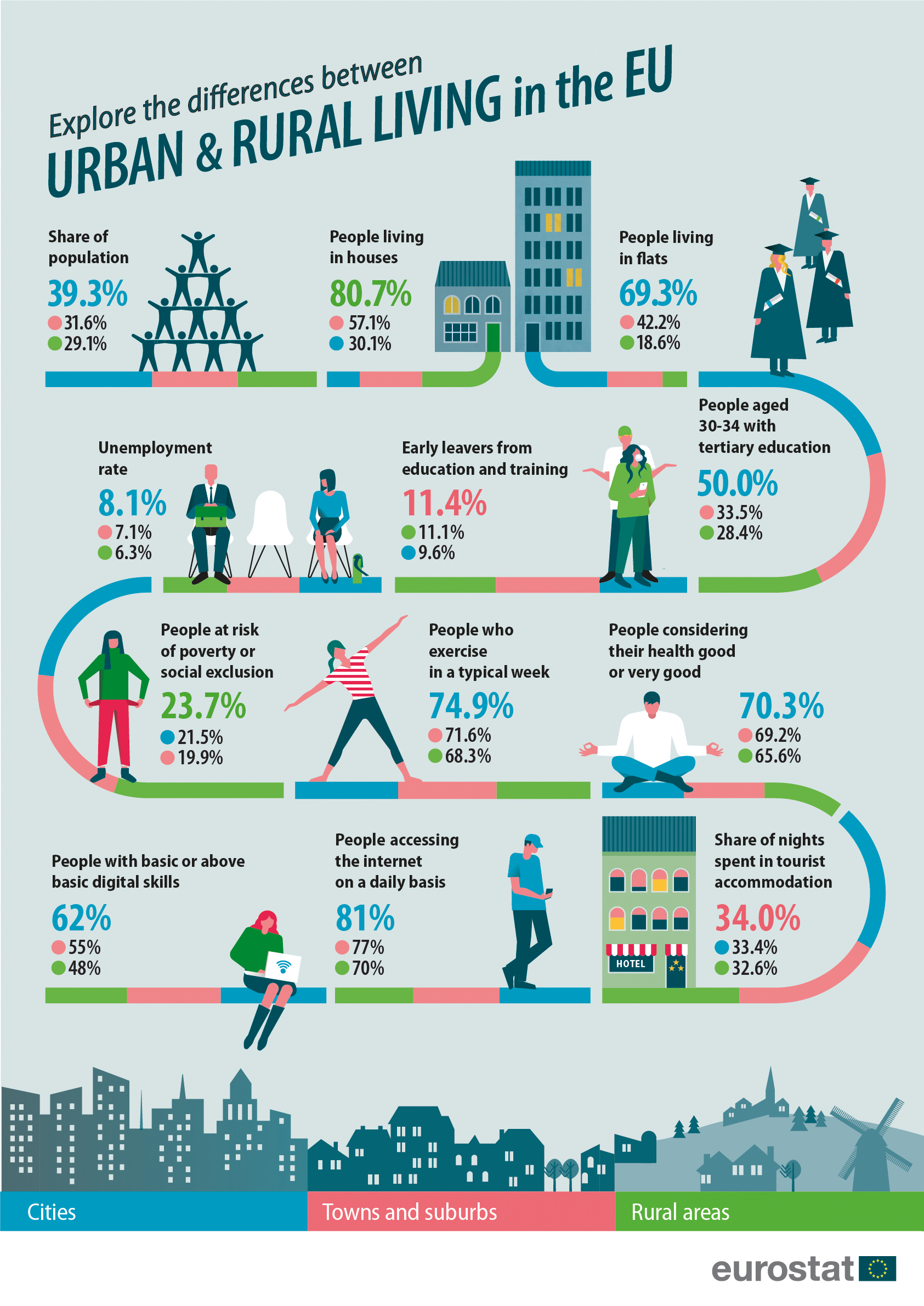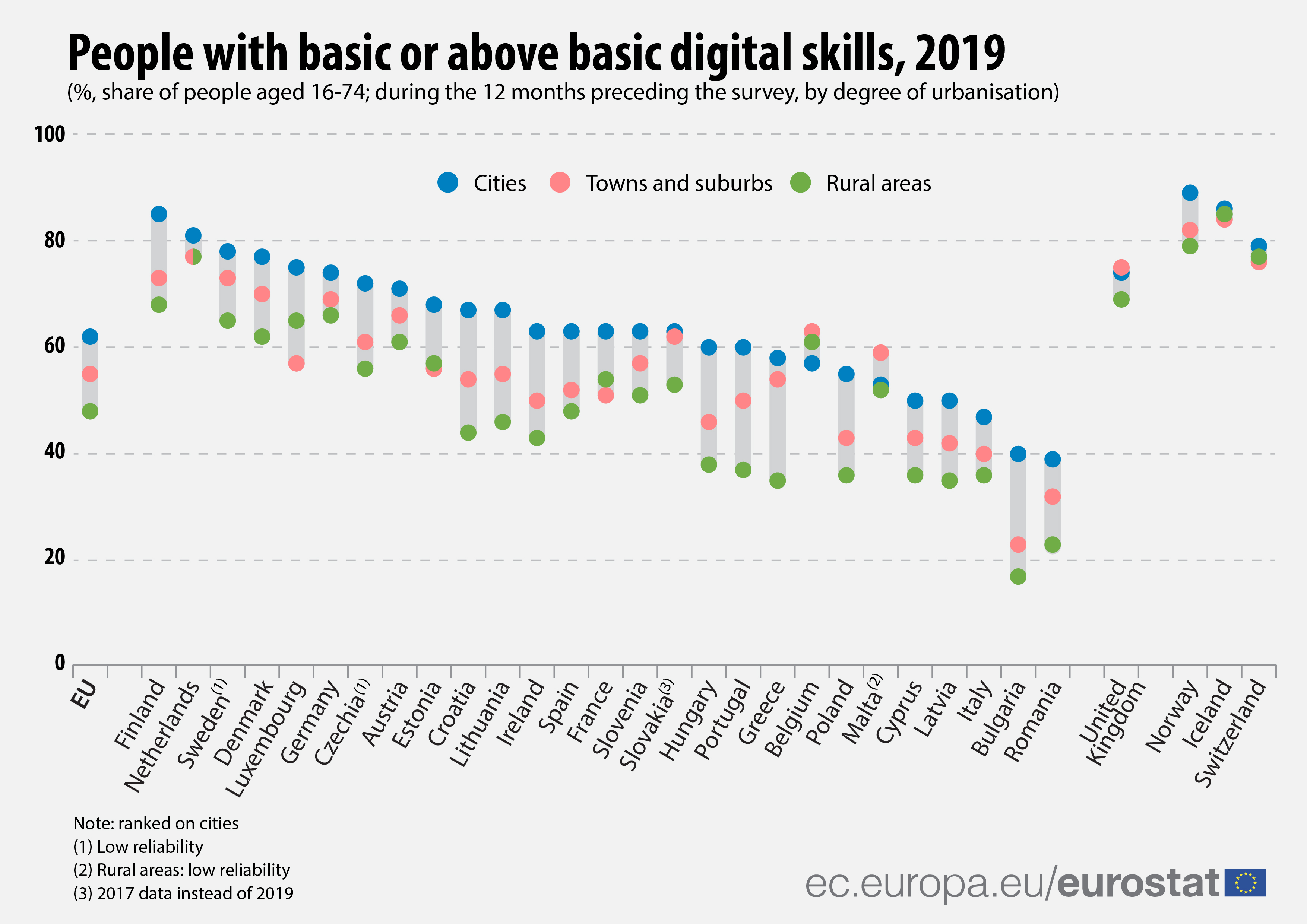In 2018, 39.3% of the population lived in the cities, 31.6% lived in towns and suburbs, and 29.1% lived in rural areas.
A closer look at digital skills
Digital skills are considered essential for global competitiveness, boosting jobs and growth, while the internet can also play a vital role in terms of providing high-quality education and training.
In 2019, the overall level of digital skills in the EU was lowest among adults who were living in rural areas (48% had basic or above basic digital skills), rising to 55% for adults living in towns and suburbs, and peaking at 62% for adults living in cities.
This pattern — with the highest level of digital skills recorded for those adults living in cities — was repeated in all but two EU Member States, the exceptions being Belgium and Malta.
Considerable digital skills divide between adults living in cities and those living in rural areas
In 2019, the gap in digital skills between city-dwellers and people living in rural areas was, on average, 14 percentage points (pp) in the EU (as measured by the difference in relative shares of adults possessing basic or above basic digital skills). This digital divide in overall skills reached over 20 pp in seven EU Member States — Ireland (20 pp), Lithuania (21 pp), Hungary (22 pp) - peaking at 23 pp in Bulgaria, Greece, Croatia and Portugal.
Source: isoc_sk_dskl_i
The overall level of digital skills in the EU has slightly increased in the past few years. In cities, the share has risen from 60% in 2015 to 62% in 2019, in rural areas from 46% in 2015 to 48% in 2019, whilst in towns and suburbs it has slightly increased from 54% in 2015 to 55% in 2019. However, the trends vary across the EU Member States.
This news item marks the tenth session of the World Urban Forum, the world's premier conference on urban issues, held from 8 to 13 February 2020 in Abu Dhabi, United Arab Emirates.
Methodological note: The basic or above basic overall digital skills represent the two highest levels of the overall digital skills indicator, which is a composite indicator based on selected activities performed by individuals aged 16-74 on the internet in the four specific areas (information, communication, problem solving, software). It is assumed that individuals having performed certain activities have the corresponding skills; therefore the indicator can be considered as a proxy of the digital competences and skills of individuals.
Note: The European Union (EU) includes 27 EU Member States. The United Kingdom left the European Union on 31 January 2020. Further information is published here.
To contact us, please visit our User Support page.
For press queries, please contact our Media Support.



